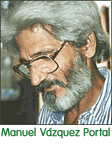COLÔMBIA: Dois jornalistas buscam refúgio na capitalUm foi baleado e o outro recebeu ameaças de morte
Bogotá, Colômbia, 12 de maio de 2003—O Comitê para a Proteção dos Jornalistas (CPJ, por sua sigla em inglês) está preocupado com dois jornalistas colombianos que abandonaram suas casas. Um escapou de ser baleado e o outro recebeu ameaças de morte. Ambos informavam com freqüência sobre a guerra civil de quase quatro décadas no país,…
Independent journalist harassed
New York, May 8, 2003—The Committee to Protect Journalists (CPJ) is concerned for the safety of Andrew Meldrum, Zimbabwe correspondent for the U.K.-based newspaper The Guardian. A group of immigration officers visited the journalist’s home unannounced yesterday evening and demanded to speak with Meldrum, according to his wife.
COLÔMBIA: O CPJ preocupado por assassinatos e ameaças
Excelencia: O Comitê para a Proteção dos Jornalistas (CPJ, por sua sigla em inglês) está alarmado pela rápida escalada de violência contra a imprensa na Colômbia nos últimos meses. Além de uma onda de ameaças que fomentaram um clima de temor nos meios de comunicação, dois jornalistas foram assassinados esta semana em ataques separados. Na…

Crackdown on the Independent Press in Cuba
El escritor y poeta Manuel Vázquez Portal es uno de los 29 periodistas independientes que fueron detenidos, procesados y sentenciados a penas de prisión de entre 14 y 27 años. En las filas de la prensa independiente desde 1995, en enero de 1999 Vázquez Portal, junto a otros periodistas, fundó la agencia noticiosa independiente Grupo…
National media outlets agree to curb reporting on terrorism
New York, April 11, 2003—The Committee to Protect Journalists (CPJ) is concerned about the “Anti-Terrorist Convention,” which was signed on Tuesday, April 8, by directors of several leading national broadcast media outlets, who agreed to accept voluntary restrictions on their coverage of terrorism and anti-terrorist government operations. The media executives who signed the agreement (click…
CPJ condemns detention of journalist
Your Excellency: The Committee to Protect Journalists (CPJ) condemns the prolonged detention of South Korean photojournalist Jae Hyun Seok, who was arrested on January 17. Seok is expected to appear for a court hearing within the next few days, according to his family. Seok was arrested while photographing the exodus of 48 North Korean refugees…
Attacks on the Press 2002: Preface
Many reporters find themselves in a dilemma when the press comes under attack. Our pride, our institutional and tribal loyalties, all clamor for a retort. We may be the bearers of bad tidings, but we are not their cause. If the truth is inimical to you, we want to argue, assailing us will not alter…
Attacks on the Press 2002: Asia Analysis
The vicious murder of Wall Street Journal reporter Daniel Pearl in Pakistan focused international attention on the dangers faced by journalists covering the U.S. “war on terror,” yet most attacks on journalists in Asia happened far from the eyes of the international press. In countries such as Bangladesh and the Philippines, reporters covering crime and…